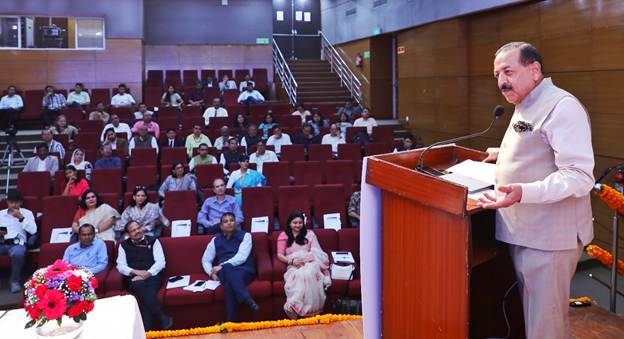Union Minister of State (Independent Charge) for Science & Technology, Earth Sciences Dr. Jitendra Singh on Friday launched the National Standards for Civil Service Training Institutes 2.0 (NSCSTI 2.0) at the Civil Services Officers Institute (CSOI) in Delhi. Developed by the Capacity Building Commission (CBC), this revamped framework marks a significant step toward building a future-ready civil service, aligning with the Modi government’s vision of integrating best practices from both public and private sectors.
Speaking at the launch, Dr. Jitendra Singh emphasized the transformative potential of NSCSTI 2.0, stating, “This milestone is a result of Prime Minister Narendra Modi’s encouragement of out-of-the-box thinking and breaking past taboos. NSCSTI 2.0 is not just a compliance tool but a transformative step toward institutional excellence.” He highlighted the framework’s role in fostering cooperative and competitive federalism, enabling training institutes to evaluate and enhance their performance, much like the Aspirational Districts Programme has uplifted backward districts.
The NSCSTI 2.0 framework introduces a streamlined and inclusive approach to civil services training. It reduces evaluation metrics from 59 to 43 for greater clarity and outcome-focused assessments. Developed through consultations with over 160 Civil Service Training Institutes (CSTIs), assessors, and domain experts, the framework addresses real-world training challenges. It is adaptable for training institutes at all government levels, including Central, State, and Urban Local Bodies (ULBs).
Embracing modern learning trends, NSCSTI 2.0 integrates hybrid learning models and AI-driven training mechanisms. It incorporates progressive elements such as Indian Knowledge Systems (IKS), the Karmayogi Competency Model (KCM), and the Amrit Gyaan Kosh (AGK), aligning with India’s goal of creating a competent, citizen-centric civil service.
Dr. Jitendra Singh noted that the Modi government’s efforts to remove barriers between public and private sectors have enabled the adoption of best practices across domains. He stressed the need for customized training modules for scientific institutions, emphasizing administrative preparedness alongside technical expertise. He also highlighted global interest in India’s Mission Karmayogi, with countries like Bangladesh, South Africa, and Maldives expressing interest in studying its civil services reform model.
The framework strengthens the civil services training ecosystem by enhancing policy visibility, encouraging innovation, and promoting continuous improvement among CSTIs. It positions accreditation as a driver of quality and performance, supported by a reactivated accreditation portal for a transparent process.
Additionally, it fosters cross-learning by enabling institutes to share experiences and success stories. Over 195 CSTIs have been accredited under NSCSTI in just two years, with the upgraded framework building on real-time feedback and participatory governance.










